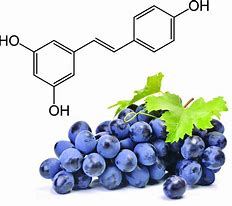Resveratrol's Potential: Nature’s Cancer-Fighting Powerhouse
September 4, 2025 – Steve Bruner

Resveratrol Potential: Nature’s Cancer-Fighting Powerhouse
Research derived from: 2025, FOOD & NUTRITIONAL SCIENCES JOURNAL: As the Founder of Natural Biology I have researched and studied antioxidants for 23 years, and I am convinced there is no better choice than Vintage Resveatrol 100%. If you take it month after month, it works like a savings account, it builds interest for your health.
Cancer remains one of the most serious global health challenges, with millions of new cases diagnosed each year. While traditional treatments such as surgery, chemotherapy, and radiotherapy can be effective, they often come with significant side effects and do not always address the tumor’s microenvironment — the conditions that help cancer survive and spread.
This has led scientists to explore complementary and alternative strategies that are safer, more targeted, and better tolerated. One natural compound gaining attention is resveratrol — a polyphenol found in the skin of red grapes, blueberries, cranberries, peanuts, and red wine.
Resveratrol’s antioxidant, anti-inflammatory, and anticarcinogenic properties have been studied for decades, and growing evidence suggests it may play an important role in both cancer prevention and treatment.
How Resveratrol Works in the Body
Resveratrol belongs to a class of plant-based compounds called stilbenes, which plants naturally produce to protect themselves against stress, UV radiation, and infections. In humans, resveratrol has been shown to:
-
Protect cells from oxidative stress that can lead to DNA damage.
-
Reduce chronic inflammation, which is linked to cancer development.
-
Inhibit cancer cell growth and promote apoptosis (programmed cell death).
-
Interfere with tumor blood supply by reducing angiogenesis.
Animal and cell culture studies show that resveratrol can influence multiple stages of cancer development — from the earliest changes in cells to advanced tumor progression.
Cancer-Specific Research
Colorectal Cancer – Studies in rodents show resveratrol can slow tumor growth, reduce oxidative stress, and protect healthy tissue. Early research also suggests it may work by interacting with estrogen-related receptors in cancer cells.
Breast Cancer – Laboratory studies have found that resveratrol can block certain cancer-promoting pathways, reduce metastasis potential, and enhance immune system activity. Novel delivery methods, such as nanocarriers, are being explored to increase its effectiveness.
Lung Cancer – Resveratrol has been shown to disrupt the function of cancer stem cells and damage cancer cell mitochondria, triggering cell death. It may also suppress key pathways that drive tumor growth.
The Bioavailability Challenge
One of the biggest hurdles with resveratrol is bioavailability — how much actually reaches your bloodstream after ingestion. The body metabolizes it quickly, which can limit its therapeutic impact.
Researchers are exploring ways to overcome this, including nano-formulations and combining resveratrol with other natural compounds for synergistic effects.
Why Natural Biology Uses Resveratrol
At Natural Biology, we’ve followed resveratrol research for over 16 years and formulated Vintage Resveratrol 100% to provide a potent, fresh, and bioavailable source of this remarkable polyphenol. Paired with other synergistic nutrients in our premium supplement lineup — including Everest Earth & Sea Formula, Norwegian Omega-3, Okinawa Coral Calcium, and OxyAge — our goal is to deliver optimal support for overall health. The best prevention is good health, and we believe science has proven that supplements play a significant role in one's health today.
The Bottom Line
Resveratrol isn’t a miracle cure — but its multi-targeted approach to supporting healthy cells, reducing inflammation, and promoting normal cell cycles makes it a promising ally in long-term wellness strategies.
Ongoing human clinical trials will tell us more, but what’s already clear is that incorporating resveratrol-rich foods and quality supplements into your lifestyle can be a smart move for both prevention and support during treatment.

0 comments